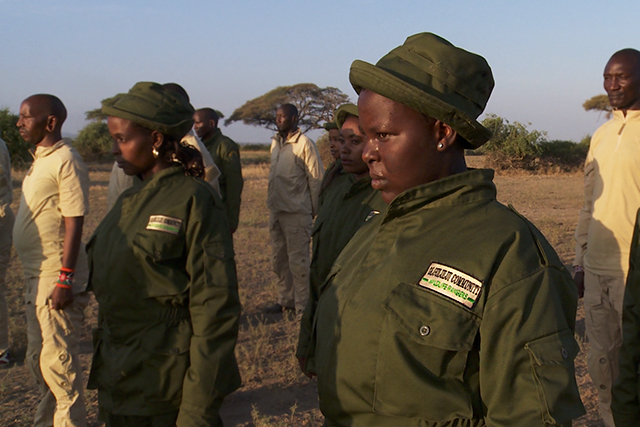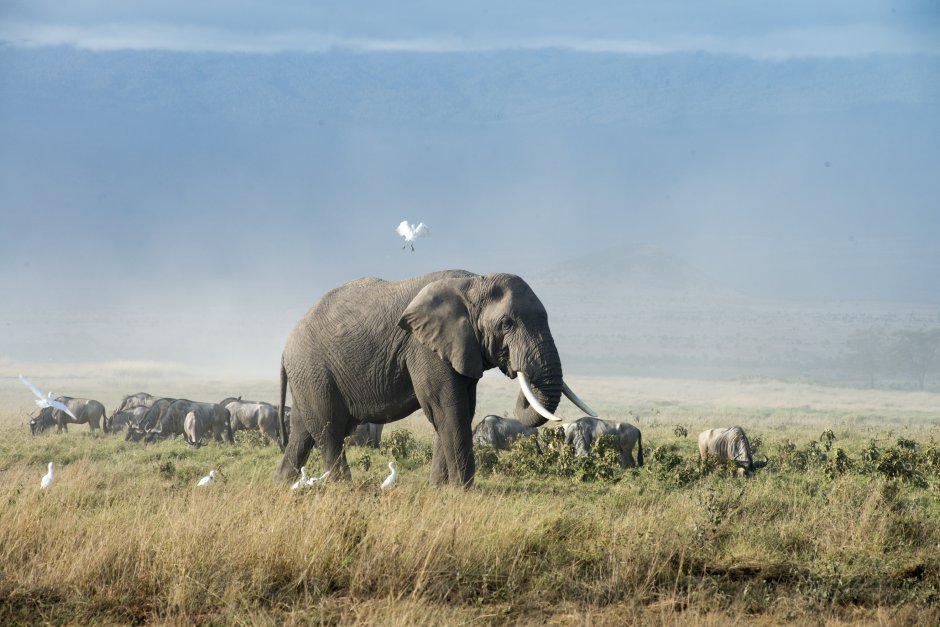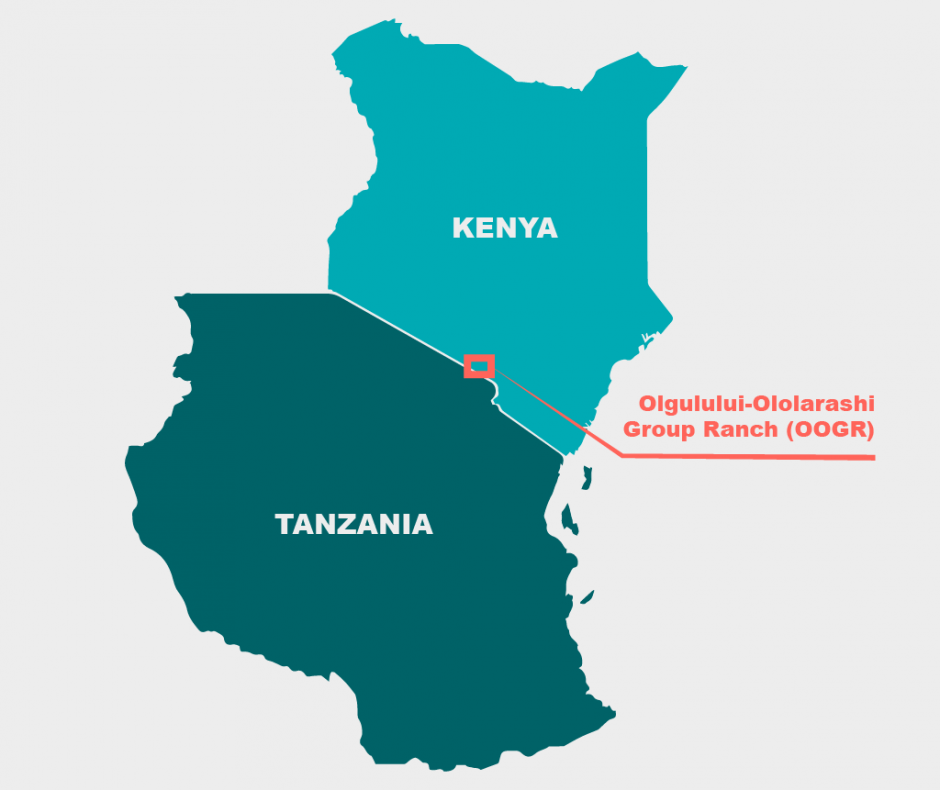Amboseli-Tsavo-Kilimanjaro Landscape
we are giving elephants room to roammeet the trailblazing maasai women protecting Amboseli's wildlife
meet the trailblazing maasai women protecting Amboseli's wildlife

Surrounding Kenya’s Amboseli National Park lies nearly 150,000 hectares of community lands shared by both people and wildlife. The Olgulului-Ololarashi Group Ranch (OOGR) is within the country’s richest area of biodiversity, making it particularly vulnerable to threats including poaching, human-wildlife conflict, and wildlife trafficking.
Now, a team of eight young Maasai women is at the forefront of championing the protection and safety of the region’s wildlife, while simultaneously helping to bridge the gender gap in conservation. Around the world, women are often less involved than men in the conservation and management of protected areas.
Team Lioness is one of Kenya’s first all-female ranger units. They join the Olgulului Community Wildlife Rangers (OCWR) who protect wildlife across six bases and one mobile unit in OOGR through IFAW’s tenBoma, an innovative wildlife security initiative.
“In the larger Amboseli region, out of almost 300 wildlife rangers, to my knowledge there was only one woman,” says Lt. Col. Faye Cuevas, IFAW Senior Vice President. “The need was apparent.”
Assessed through an intensive leadership and peer-review process by a panel of tenBoma representatives and the OCWR Director of Security, the women of team Lioness were selected based on their academic achievements and physical strength, as well as their demonstration of trustworthiness, discipline, and integrity.
“As the first women joining the OCWR Rangers, each of the team Lioness recruits brings a new perspective and a different experience with wildlife than her male counterparts,” says Cuevas. “They are important voices in protecting wildlife and reconnecting communities to the benefits of sharing land with the magnificent big cats and other wildlife that call OOGR home.”
The recruits range in age from 19 to 26 years old, and all are the first women in the history of their families to secure employment. For many, the opportunity to join team Lioness has been life-changing — on average, Maasai girls typically leave school around the age of 10. Even among Maasai women who achieve a higher education, many lack opportunities to seek jobs or financial independence.
“It’s very rare that Maasai women achieve a secondary education,” says Cuevas. “But all of team Lioness have the equivalent of a US high school education, and none of them have had a paying job before this. It’s breaking barriers.”
Positioned on the Kenya-Tanzania border, OOGR is an expansive area of traditional Maasai community lands and it almost completely encompasses Amboseli National Park. Within Amboseli’s ecosystem, OOGR alone is home to 90% of habitats and corridors for migratory wildlife, including the park’s 2,000 elephants. Forming a horseshoe around Amboseli, it is an essential passage for elephant migration — every elephant that leaves the national park travels through this area, whether on a southern or northern migration route.
“Because we’re conserving our environment, animals are here,” says Loise, a team Lioness ranger. “Through wild animals, there is foreign exchange. As a ranger, now I know I have to teach other women about it. I would like to help others in our community and be a good example. I’m working and happy about that.”

Other wildlife such as giraffes, lions, leopards, cheetahs, baboons, zebra, buffalo, and vervet monkeys also call OOGR and Amboseli home. Due to Amboseli’s proximity to a porous border with Tanzania, coupled with the scale of threats like poaching, retaliatory killings, and the trafficking of wildlife and animal parts, all wildlife in this area is in potential danger. Team Lioness and the OCWR Rangers form the first line of defense for protecting and securing wildlife in these vast community lands.
“We’re encouraging the community to take care of the animals, because in our community if a lion gets in a boma or in our village, [the community] gets it out of the village and they go to kill it. So we’re encouraging them [to see the] importance of animals and to understand,” says Sharon of team Lioness.

Team Lioness will undergo initial training with the OCWR Rangers, followed by a 21-day basic ranger training course that integrates them into the six bases throughout OOGR. In addition to supporting wildlife security operations throughout the region, a large part of team Lioness’ mission will be engaging with Maasai women and maintaining community buy-in for conservation through school visits and fostering community involvement.
“For me, to be a part of team Lioness, it shows that women have an opportunity,” says Purity, a team Lioness ranger. “I’m gaining skills and knowledge on how to conserve and protect wild animals. I will go back to my community and tell them the importance [of conservation] and show them through my experience. You kill that lion, you kill your future.”
The presence of team Lioness has created a demand in some Maasai communities for more female leadership in conservation initiatives and calls for additional female rangers.
“News of team Lioness is really catching on in the Maasai community,” Cuevas says. “A Maasai woman elder from outside OOGR attended one of the recent community meetings and said, ‘I challenge us as a Maasai people that for every four rangers we hire, one of them is a woman.’ It’s really incredible. Getting the word out means we can continue to leverage tenBoma to enable rangers to act predictively to prevent harm to both wildlife and the communities that share land in the expansive OOGR.”
Related content
Our work can’t get done without you. Please give what you can to help animals thrive.